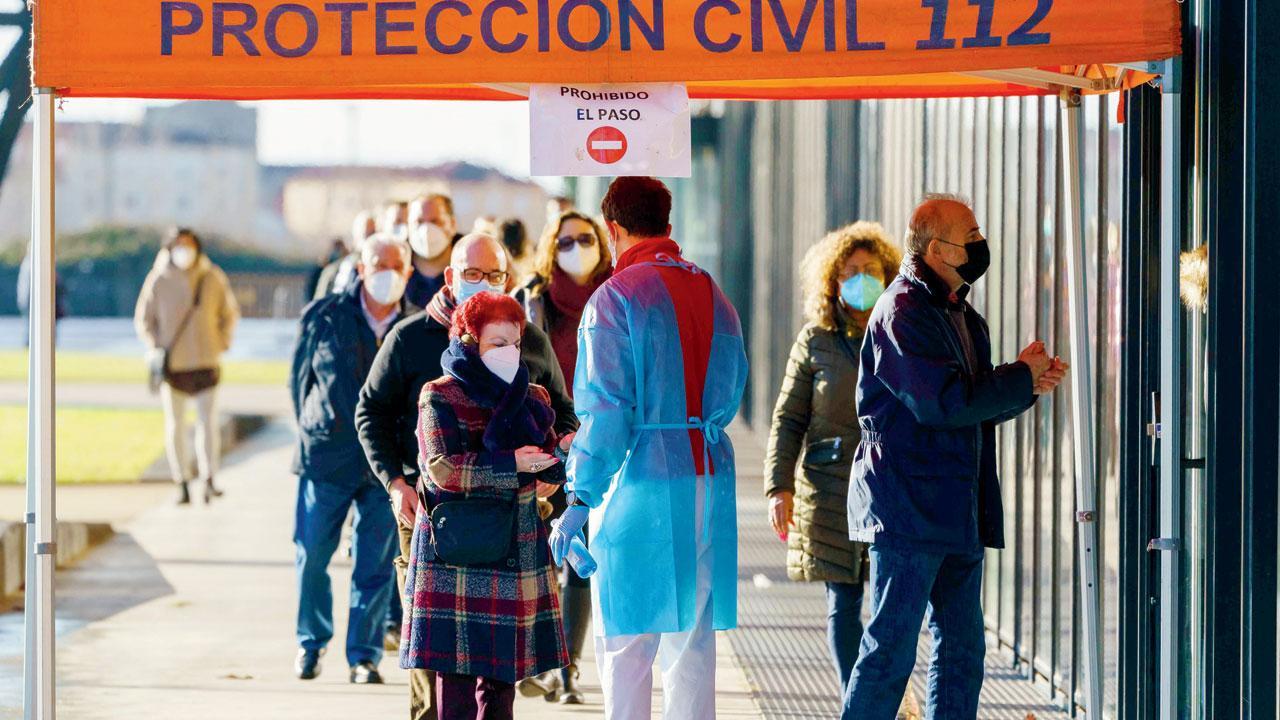Oxford univ study, which hasn’t been peer-reviewed yet, doesn’t address the efficacy of the vaccine by Pfizer which recommends a three-week gap between doses

Residents queue during a mass screening to test 100 percent of the town’s population in Leon, Spain, on Wednesday. PIC/AFP
Britain’s health chief said on Wednesday that a new study suggesting that a single dose of the Oxford-AstraZeneca COVID-19 vaccine provides a high level of protection for 12 weeks supports the government’s strategy of delaying the second shot so more people can quickly be protected by the first dose.
ADVERTISEMENT
Britain’s decision has been criticised as risky by other European nations. Health Secretary Matt Hancock’s comments came after Oxford University released a study showing the vaccine cut the transmission of the virus by two-thirds and prevented severe disease.
The study has not been peer-reviewed yet and does not address the efficacy of the Pfizer vaccine currently in use in the UK. Pfizer recommends that its shots be given 21 days apart and has not endorsed Britain’s move to lengthen the time between doses.
In Australia, the government’s health regulatory agency have decided to place no upper age limit on use of the Pfizer vaccine despite reports of dozens of deaths among the elderly in Norway. It says that “elderly patients can receive this vaccine.” Meanwhile, Drugmaker GlaxoSmithKline said on Wednesday it will work with German biopharmaceutical company CureVac to develop new vaccines targeting emerging variants of COVID-19.
S Korea bringing curbs for holiday
South Korean officials are moving to limit travel and gatherings during next week’s Lunar New Year’s holidays by allowing train operators to sell only window seats and passenger vessels to operate at half capacity. The Health Ministry announced the steps on Wednesday while repeating a plea for people to stay home amid a steady rise in coronavirus infections.
2,57,270
No. of new cases reported globally in the past 24 hours
10,39,72,191
Total no. of cases worldwide
22,55,496
Total no. of deaths worldwide
Source: WHO/Johns Hopkins
 Subscribe today by clicking the link and stay updated with the latest news!" Click here!
Subscribe today by clicking the link and stay updated with the latest news!" Click here!







